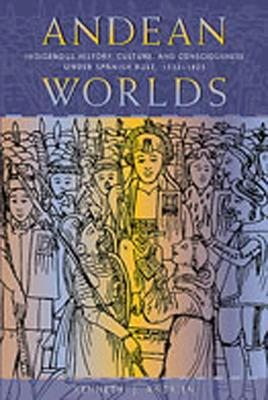This broadly gauged, synthetic study examines how the Spanish invasion of the Inca Empire (called Tawintinsuyu) in 1532 brought dramatic and irreversible transformations in traditional Andean modes of production, technology, politics, religion, culture, and social hierarchies. At the same time, Professor Andrien explains how the indigenous peoples merged these changes with their own political, socioeconomic, and religious traditions. In this way European and indigenous life ways became intertwined, producing a new and constantly evolving hybrid colonial order in the Andes.
After beginning with a study of Tawintinsuyu on the eve of the Spanish invasion, Andrien then presents the salient topics in Andean colonial history: the emergence of the colonial state; the colonial socioeconomic order; indigenous culture and society; Spanish attempts to impose Roman Catholic orthodoxy; and Andean resistance, rebellion, and political consciousness. By drawing on his own research and the contributions from scholars in many disciplines, Kenneth J. Andrien offers a masterful interpretation of Andean colonial history, one of the most dynamic and creative fields in Latin American studies.
"This is a clearly written, comprehensive, and well-balanced account. . . particularly in discussions of the often vexed and central question of Spanish versus Native American issues."--Peter J. Bakewell, Edmund and Louise Kahn Professor of History, Southern Methodist University
